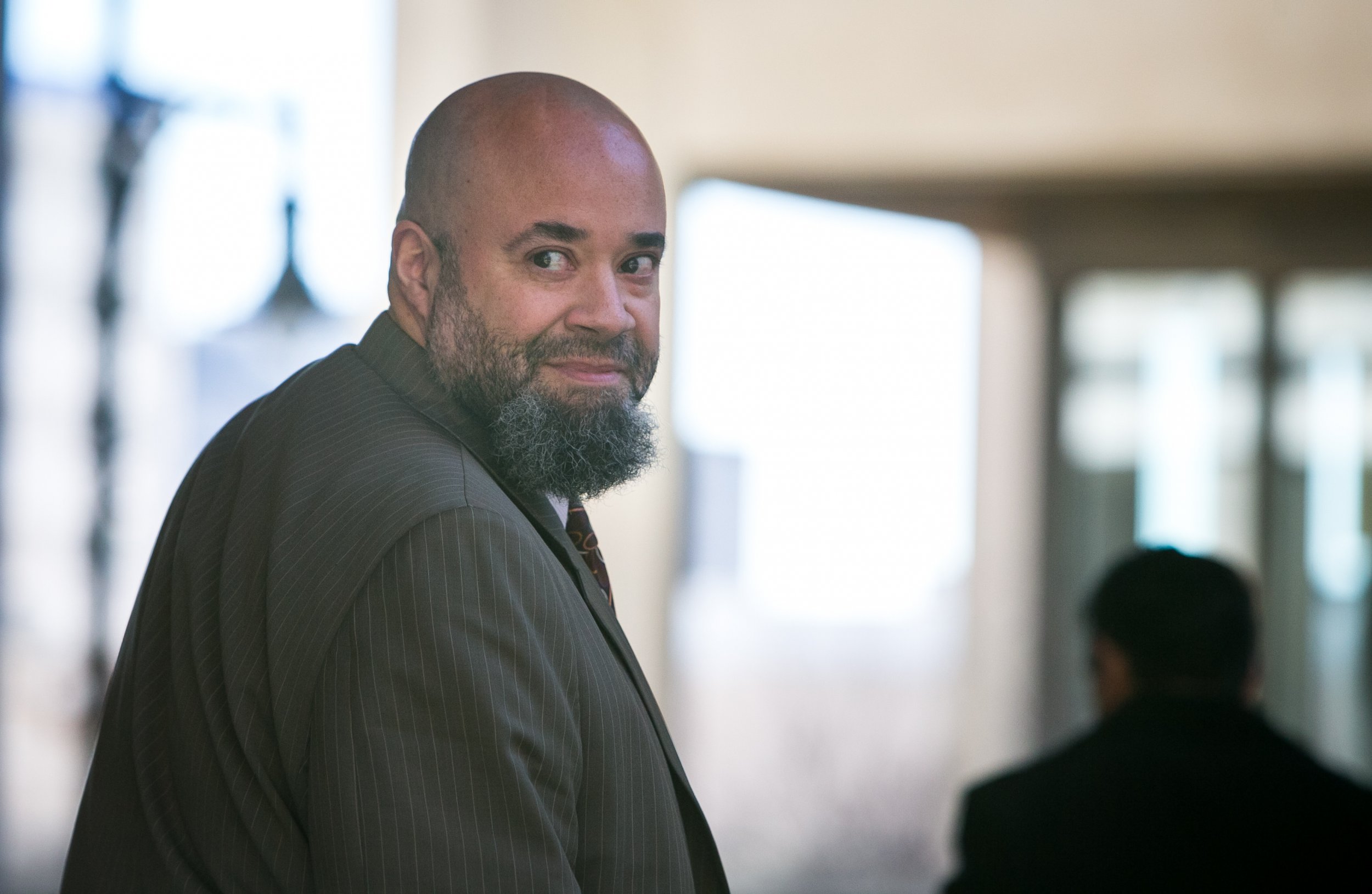
In a national first, defendants in Delaware have been convicted under the federal "cyberstalking resulting in death" statute, marking a shifting attitude about the real-world threat posed by cyber-intimidation.
Three family members—former optometrist David T. Matusiewicz; his mother, Lenore Matusiewicz; and his sister, Amy Gonzalez—were sentenced to life in prison last week for the 2013 murder of David's ex-wife and her friend at a Delaware courthouse. The three family members' convictions, which include conspiracy, interstate stalking resulting in death and cyberstalking resulting in death, followed a five-week jury trial this past summer.
On February 11, 2013, David Matusiewicz's father, Thomas Matusiewicz, fatally shot his former daughter-in-law, Christine Belford, and her friend Laura "Beth" Mulford in the New Castle County Courthouse lobby as they arrived for a child-support hearing. Thomas Matusiewicz shot and killed himself after exchanging fire with police.
Following the shooting, federal prosecutors accused David and Lenore Matusiewicz and Gonzalez of lodging a ruthless campaign to stalk and harass Belford and her three daughters in the years preceding Belford's murder. According to the U.S. attorney's office, the Matusiewicz family used mail, email, websites and Internet postings on sites such as YouTube to "broadly disseminat[e]…false allegations that Christine Belford had, among other things, abused her children, suffered from mental illness and attempted to harm Lenore Matusiewicz." The family is also said to have conducted physical and online surveillance of Belford and her children.
The child-support hearing was just a part of a protracted battle between Belford and David Matusiewicz over their three daughters. David Matusiewicz lost his parental rights after he and his mother kidnapped the children and took them to live in South America in 2007, claiming it was for the girls' safety. In 2009, authorities found the group living in a motor home in Nicaragua, arrested David and Lenore Matusiewicz, and returned the girls to the care of their mother.
David Matusiewicz and his mother pleaded guilty to charges related to the kidnapping, and he was sentenced to 48 months in prison. From his prison cell, he allegedly recruited his family members to conduct the elaborate campaign meant to "stalk, harass and intimidate" his ex-wife and children, according to the Justice Department.
On the morning of the incident, David and Thomas Matusiewicz showed up at a hotel parking garage near the court in a car that contained "ammunition, a military-style knife, three sets of restraints of progressively smaller sizes, a bulletproof vest, an electric shock device, binoculars and photographs of Belford's children and residence," according to the Justice Department.
At around 8 a.m., David Matusiewicz passed through security and walked to another floor, while his father remained in the lobby. When Belford and her friend entered the courthouse, Thomas Matusiewicz shot them both multiple times. A shootout ensued between police and Thomas Matusiewicz in which he injured two Capitol Police officers before turning the weapon on himself.
Defense attorney Edson Bostic argued before jurors that the killing was Thomas Matusiewicz's "secret plan" and that he hadn't shared it with the others. Prosecutors countered that the murder was "reasonably foreseeable" considering the stalking campaign that preceded her death.
A federal jury convicted the group—David and Lenore Matusiewicz and Gonzalez—of interstate stalking and cyberstalking, and found each criminally responsible for Belford's death. Judge Gerald Austin McHugh subsequently handed them each a life sentence, arguing that their behavior was inextricably linked to the murder that occurred. Acting U.S. Attorney David C. Weiss said in a statement that the life sentences were necessary to punish the defendants and to protect the community, including Belford's children.
"Things have changed quite a bit in the world and society has been warming up to the idea that cyberstalking and cyberbullying [are] as real and as scary as direct, physical threats in person," Diana Aizman, a Los Angeles–based criminal defense attorney, said in reaction to the case. She said that while there have been other cases in which cyberstalking was found to have resulted in a suicide, it failed to rise to the level of homicide—until now.
"The clear message that it sends to everyone in the criminal-law world is that not only is the government able to file these charges, they are able to convict on these charges and get the maximum penalty," Aizman says. "It is probably going to be something that motivates other defendants to settle their cases sooner, to see if they can avoid this kind of a steep penalty."
Because the case represents the first conviction for cyberstalking resulting in death, it is expected to be appealed and heavily litigated in the years to come.
Uncommon Knowledge
Newsweek is committed to challenging conventional wisdom and finding connections in the search for common ground.
Newsweek is committed to challenging conventional wisdom and finding connections in the search for common ground.
About the writer
Lauren is a reporter covering technology, national security and foreign affairs. She has previously worked on award winning teams at ... Read more





